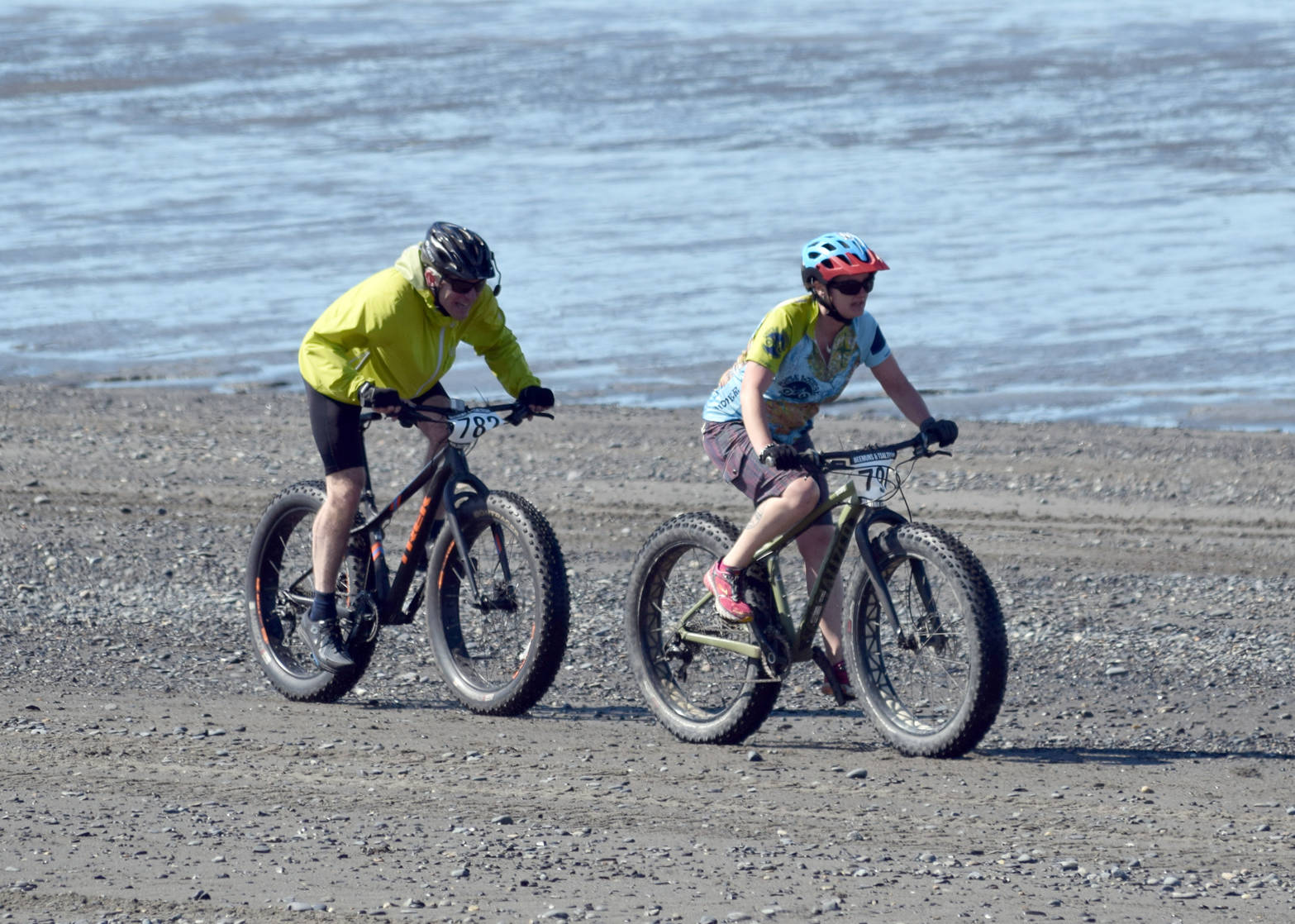Kenai and Soldotna were both recently awarded bronze-level status by the League of American Bicyclists for meeting standards set by its Bicycle Friendly Community Program.
The two peninsula communities are now two of only 464 nationwide that have been given the status of a bicycle-friendly community, and join three other Alaskan towns that have been recognized. Juneau also holds a bronze-level status, while Anchorage and Sitka have both been granted silver-level status.
In 2018, 80 new and renewing applicants sent in submissions, with 61 of those being given a status award. With a population of 4,333, Soldotna is the fourth-smallest community to be recognized on the most recent list, which was released in the organization’s fall 2018 conclusion.
The recognition is a big deal for not only the cycling community, but the local economy as well.
“It’s about getting the momentum to make biking safer, which increases businesses to have a volume of customers come in,” said Matt Pyhala, owner and chiropractor at Alaska Advanced Care Chiropractic. “They’ve shown that communities which are bike friendly, the businesses thrive.”
Pyhala is part of Bike In Kenai and Soldotna (BIK&S), a community cycling advocacy group, which Pyhala referred to as a “bit of a grassroots” group. Members of BIK&S worked diligently with local businesses and organizations to piece together a road map of cycling in Kenai and Soldotna.
Founded in 1880, the League of American Bicyclists advocates for safer roads and promotes a mode of transportation that is beneficial as a lifelong activity. The league, which promotepoc a vision of “a nation where everyone recognizes and enjoys the many benefits and opportunities of bicycling,” occasionally merits communities across the nation with one of five levels of cycling recognition — bronze, silver, gold, platinum and diamond.
The award level a community receives is derived from about a dozen key metrics that create a healthy cycling community.
The league doesn’t dole out awards on its own accord. If a community wishes to be recognized and receive a Bicycle Friendly Community status, it must submit an application that provides enough information on how cycling is impacted and how it impacts that community. The organization highlights a quintet of key building blocks that allow for a positive cycling community, the five “E”s — engineering, education, encouragement, enforcement and evaluation.
The status a town or city receives isn’t permanent. A community must resubmit its application every four years to either maintain its status or move up to the next level.
Sarah Pyhala, Matt’s wife, was part of the subcommittee that was set up by the city of Kenai to evaluate the current state of cycling on the peninsula, and said it took six months to complete an application that could be sent to the League of American Bicyclists for review. Pyhala said she worked with a handful of sources, including Kenai Police Chief David Ross, Kenai City Planner Elizabeth Appleby and head of Kenai Parks and Recreation Bob Frates, to collect and analyze data points such as the total mileage of bike paths and trails, biking programs, cycling infrastructure, education in schools, community events and others.
“The fact that both cities were given that is a delightful surprise,” she said. “We’re just trying to make biking fun and increase exposure, learning the rules of the road instead of taking things into their own hands.”
Pyhala made the award announcement last week at the Soldotna City Council meeting, while the announcement was made at a Tsalteshi Trails Association meeting with Cook Inlet Keeper member Kaitlin Vadla and Jenn Tabor.
Some of the cycling community’s growth is owed to people like Tabor, who played a part in creating the Tsalteshi Sprockets program last summer, a weekly session for youth riders to introduce them to the sport and improve their expertise.
Sarah Pyhala noted that Soldotna holds events like the Full Moon Bike Ride — a monthly ride held during the full moon — and that some Kenai schools have cycling curriculum, such as biking P.E. classes at Kenai Middle School.
On its newly acquired report card produced by the league, the city of Kenai received good marks on education in schools, total bicycle network mileage compared to road network mileage, and safety promotion and enforcement. Kenai scored 2.9 out of 10 on enforcement, which focuses on promoting safety and protecting bicyclist’ rights, and scored 2.5 out of 10 on education, which focuses on motorist awareness and bicycling skills.
Soldotna fared similarly well, scoring a 2.7 out of 10 on enforcement and 2.2 out of 10 on two other categories; encouragement and evaluation and planning. The report also recognized Beemun’s Bike and Ski Loft in Soldotna as a bicycle-friendly business.
The most impressive mark of all for both Kenai and Soldotna was its fatality rate — neither community has recorded a single fatality per 10,000 bicycle commuters.
In order to upgrade to silver, the report indicates that both Kenai and Soldotna could improve event coordination such as bike-to-work days, and both communities could establish active bicycle advisory committees that meet regularly.
Matt Pyhala said, in general, the report was quite positive.
“We’re pretty happy to achieve this,” he said.
For the long-term outlook, the bronze-level status gives Kenai and Soldotna another way of attracting tourism and avid cyclists to the community.
“Just bringing some attention to the peninsula with opportunities for biking is something that we can absolutely market for tourism,” Pyhala said. “We’re also just looking forward to improving trails and build that cycling community here.”

